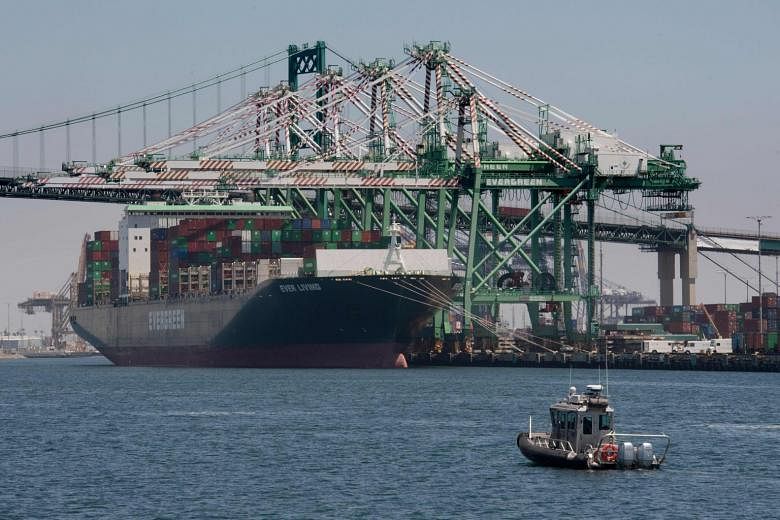The global maritime sector will have to continue to sail through choppy waters, with several factors that blunted its growth last year persisting. They include trade tensions between the United States and China, a global economic slowdown and the impact of Brexit, said a United Nations report yesterday.
The UN Conference on Trade and Development's (Unctad) Review of Maritime Transport 2019 revealed that maritime trade volumes expanded by only 2.7 per cent last year. This was down from 4.1 per cent in 2017 and below the historical average of 3 per cent.
The slowdown in growth affected nearly all maritime cargo segments, the report noted. Sectors that slowed included the global port traffic and container trade.
Unctad secretary-general Mukhisa Kituyi said: "The dip in maritime trade growth is a result of several trends, including a weakening multilateral trading system and growing protectionism.
"It is a warning that national policies can have a negative impact on the maritime trade and development aspirations of all."
The report covers five main areas of maritime transport: maritime freight, world fleet, rates and markets, ports, and regulatory and legal framework. It noted that despite the setbacks faced by the industry, total seaborne trade volumes amounted to 11 billion tons last year.
A silver lining for the industry came in the expanding liquefied natural gas sector as a result of intensified pressure to promote cleaner energy sources.
Unctad said the outlook for sea-borne trade remains shaky as uncertainty over the world economy remains. But despite this, international maritime trade is still expected to expand at an average annual growth rate of 3.4 per cent between this year and 2024. This would be "driven in particular by growth in containerised, dry bulk and gas cargoes", the report said.
Other positive developments that could help reduce pressure on maritime trade included China's Belt and Road Initiative and new bilateral and regional trade agreements.
Unctad's report also noted that the maritime transport industry was in the midst of a transformation, with a "new normal" in the making.
Ms Shamika N. Sirimanne, director of its division on technology and logistics, said: "Today, the maritime sector is dealing with much more than market uncertainty and short-term cyclical factors. Other factors that are structural and existential, such as technological disruptions and climate change, are at play and are redefining the sector."
To adapt successfully to the "new normal", Unctad called for stakeholders to come up with "improved planning, adequate response measures, as well as flexible and forward-looking transport policies that anticipate change".


